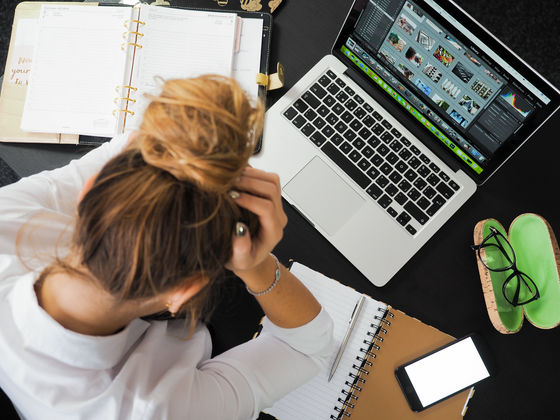The use of smartphones and notebook PCs is 'permitted' in the classroom, and the student's grade is deteriorated

by Tirachard Kumtanom
In recent years, some students use electronic devices such as smartphones, tablets, and laptops when they do research at school lessons, or learning using smartphones for learning applications. Under such circumstances, research results were announced that "the use of smartphones and notebook PCs is" permitted "only in school classes, the student's performance will be lowered."
Dividing attention in the classroom reduces examination performance: Educational Psychology: Vol 0, No 0
https://www.tandfonline.com/doi/full/10.1080/01443410.2018.1489046
Even Just The Presence of a Phone or Laptop in Class Can Push Down Grades, Study Finds
https://www.sciencealert.com/phones-in-lectures-can-hurt-grades-even-when-not-used
Psychologists at Rutgers University in New Jersey said that on one of the two classes lectured in the same way by the same lecturer, "permit use of electronic equipment" on one side, "prohibit the use of electronic equipment" on the other side We set a rule called. Among the 118 students who attended the lecture, 39% of whites, 31% of Asians, 13% of Latin, 6% of African and 4% mixed, the other 7% are "others" It was said that it was a species composition.
In a class permitted to use electronic equipment, it seems that students were allowed to freely use electronic devices such as smart phones, notebook PCs, tablets, etc. during lecture. Meanwhile, in classes where the use of electronic equipment is prohibited, students are strictly checked not to use electronic equipment, and students are confident that electronic devices are not being used during the lecture and attention There was an observer to prepare. "When the first three weeks passed, nobody quietly stopped touching the electronic equipment," researchers said.

by energepic.com
In each of the two classes, we conducted a test to check the comprehension level of what we did in the previous lecture for each lecture, three regular tests during the semester, and a final exam at the end of the term. As a result, in the comprehension test conducted for each lecture, there was no difference in the results of the test as much for the classes for which classes permitted to use electronic equipment are also prohibited.
However, when it comes to three periodic tests and final tests, the classes prohibited have a tendency to be higher than the classes permitted to use electronic equipment. Also, since the difference between the two classes in the term-end test is larger than that in the regular test, the longer the period during which the electronic device can not be used during the lesson, the larger the difference between the results of both groups is increased It was shown.

In addition, regarding the classes permitted to use electronic equipment, investigation was also conducted on the question "Were you actually using electronic equipment during lecture?" As a result, more than half answered "I used electronic equipment at more than half of the lecture", but there were six students who answered "I did not use electronic equipment at all".
Students who did not use electronic equipment during the lecture despite being permitted to use electronic equipment had quite a good result in the understanding test of each lecture. However, at the end-of-term test, the students in the class permitted to use the electronic equipment had a great difference in grades for the students of the class prohibited to use.

The result of this time showed the possibility that the student 's concentration ability drops and the grades decrease as a result only in the situation that "you can touch electronic devices." However, the research team has said that this experiment is only a small scale and states that further research is necessary in the future.
Related Posts:







